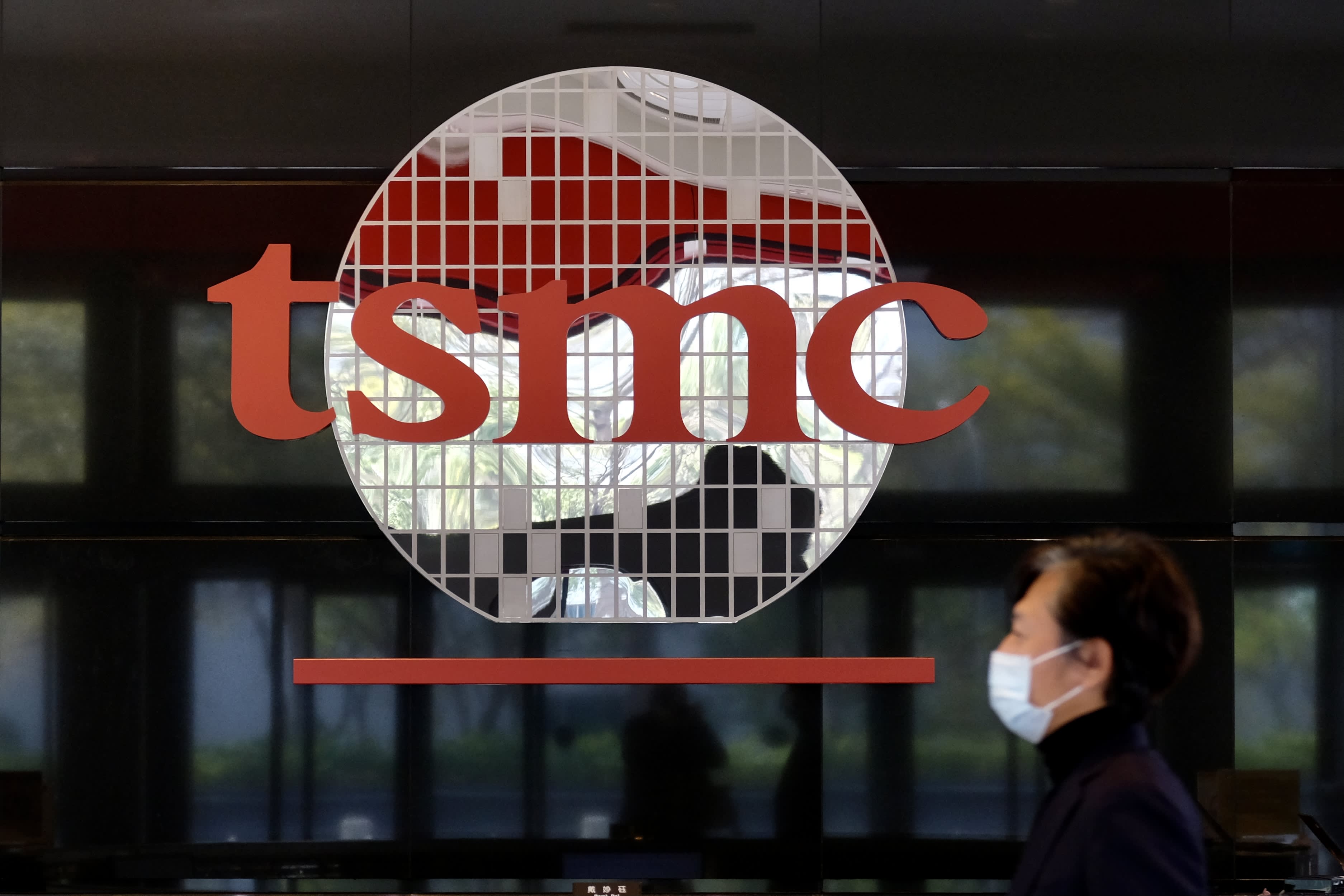
Taiwan’s outsized role in chipmaking has come under the spotlight as a global shortage of semiconductors forced several automakers to halt production.
Countries including the U.S. and Germany reached out to Taiwan to help alleviate bottlenecks in the production of chips. The shortage was a result of increased demand for electronics during the Covid-19 pandemic, and was exacerbated by former President Donald Trump’s trade war with China.
Taiwan dominates the foundry market, or the outsourcing of semiconductor manufacturing. Its contract manufacturers together accounted for more than 60% of total global foundry revenue last year, according to data by Taipei-based research firm TrendForce.
Much of Taiwan’s dominance can be attributed to Taiwan Semiconductor Manufacturing Co or TSMC, the world’s largest foundry that counts major technology firms such as Apple, Qualcomm and Nvidia as its clients. TSMC accounted for 54% of total foundry revenue globally last year, TrendForce data showed.
Semiconductors are critical components that power electronics from computers and smartphones to the brake sensors in cars. The production of chips involves a complex network of firms that design or make them, as well as those that supply the technology, materials and machinery to do so.
TSMC focuses solely on manufacturing and has been the go-to producer for many cutting-edge semiconductors, Dan Wang, a technology analyst at research firm Gavekal, said in a podcast by Singapore’s DBS bank.
“So TSMC, if you just have a look at market share, I believe manufactures around 50% of all semiconductors in the world. And I think that still understates how important it is, because these are some of the most advanced chips out there,” said Wang.
Semiconductor designers and manufacturers are on a quest to make chips smaller and better. Currently, TSMC and its South Korean rival Samsung are the only foundries capable of manufacturing the most advanced 5-nanometer chips.
TSMC is already gearing up for the next-generation 3-nanometer chips, that will reportedly start production in 2022.
China playing catch up
Some countries are planning to boost their own semiconductor production — and one of them is China, which is aiming to be more self-reliant.
But China’s tech fight with the previous U.S. administration is holding back its largest chipmaker Semiconductor Manufacturing International Corporation, or SMIC, said Paul Triolo, geo-technology practice head at risk consultancy Eurasia Group.
TSMC is just so dominant. It no longer really has much competition at all on the high end.Dan Wangtechnology analyst, Gavekal Dragonomics
Last year, the Trump administration placed SMIC on a blacklist known as the entity list, which limits the company’s access to technology and machinery that it needs.
SMIC was the fifth largest semiconductor foundry globally by revenue in 2020 — behind Taiwan’s TSMC and UMC, South Korea’s Samsung, and GlobalFoundries in the U.S., TrendForce data showed.
“The target right now is being able to compete at the cutting edge with companies like TSMC, Samsung and Intel,” Triolo told CNBC’s “Squawk Box Asia.”
“The problem that SMIC is in now, the dilemma, is the U.S. government has put them on the entity list,” he said. “But the bigger picture is that SMIC has been cut off, at least for the moment, from acquiring the really cutting-edge equipment it needs from ASML, which is a Dutch company.”
ASML makes the so-called extreme ultraviolet lithography equipment that’s used to produce the most advanced chips such as those manufactured by TSMC and Samsung. Reuters reported last year that the Trump administration pressured the Netherlands government to stop the sale of the machine to SMIC.
Even if SMIC has access to ASML’s equipment, the company would take years to start producing high-end chips in large quantities, said Triolo.
Until then, it appears that TSMC would maintain its leading position.
“TSMC is just so dominant. It no longer really has much competition at all on the high end. And so, it took a while for this model really to work out. But at this point, it can be a very profitable company indeed,” said Wang of Gavekal.
— CNBC’s Eustance Huang and Arjun Kharpal contributed to this report.


